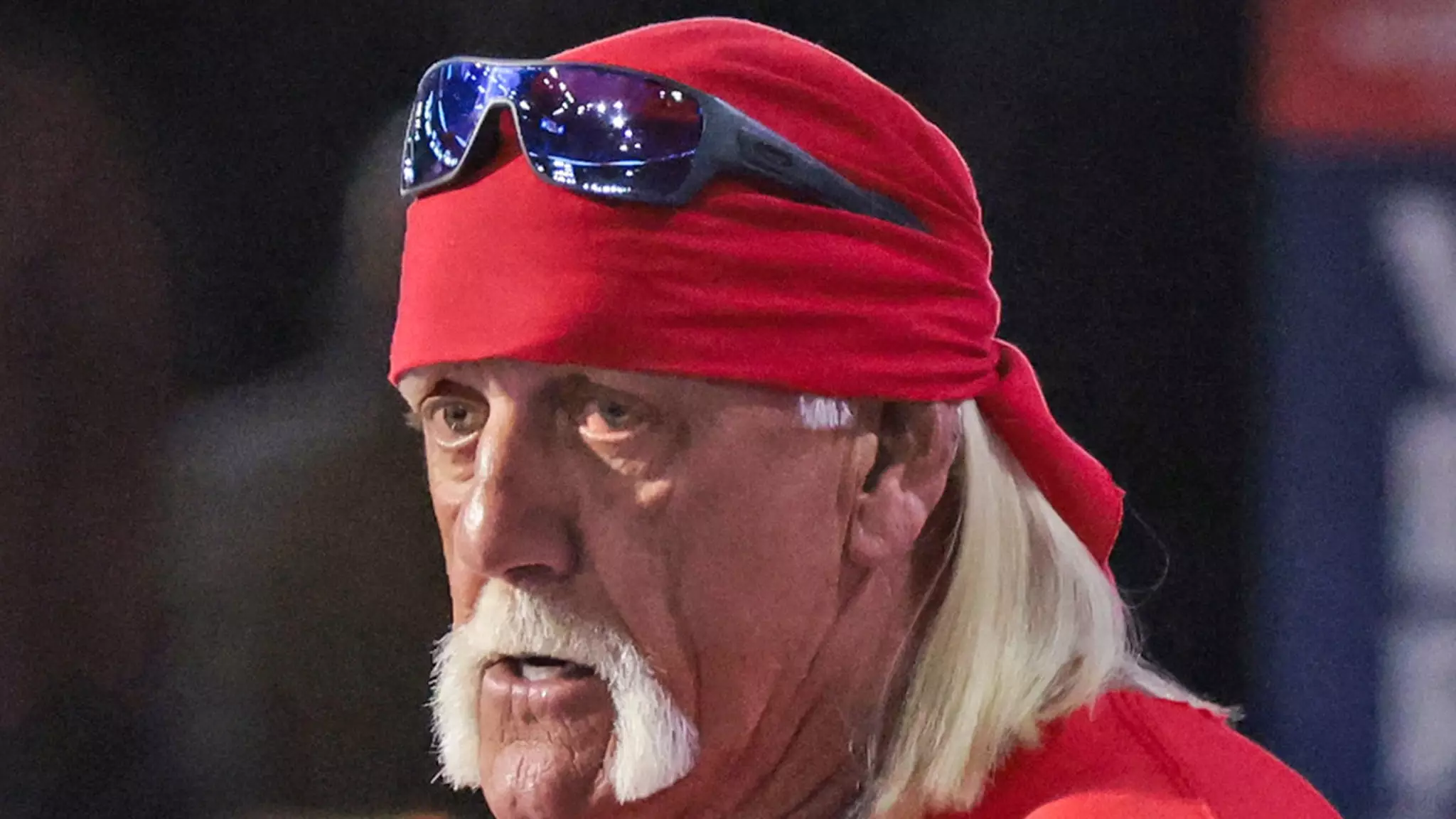In an unexpected and tragic turn of events, the world learned that wrestling icon and pop culture titan Hulk Hogan had passed away at the age of 71. The news sent shockwaves through fans and peers alike, highlighting how one man’s influence shaped an entire industry and cultural landscape. Hogan’s sudden departure, stemming from a cardiac arrest at his Florida residence, underscores the fragility of even the most towering figures. As first responders desperately tried to save his life, the stark reality set in—Hogan’s legacy was vast, but his life was finite. His death marks an end of an era, yet it also prompts reflection on his indelible impact.
The details surrounding his death are poignant; emergency services arrived early Thursday morning as Hogan was in distress, performing life-saving measures before rushing him to the hospital. Despite efforts, Hogan was pronounced dead at 11:17 AM. Critical voices and fans had hoped for a different outcome, especially considering his recent health updates. Just weeks earlier, his wife, Sky, assured the public that Hulk’s heart was strong amid recovery from surgeries, casting the recent rumors of his critical condition as false. Yet, the reality was stark—Hogan’s health had been a fragile balancing act, complicated by his history of injuries and surgeries. The truth of his death reminds us how even the most resilient warriors are vulnerable, and how fleeting moments can extinguish the brightest stars.
The Cultural Phenomenon: From Wrestling Ring to Global Icon
Hulk Hogan’s story transcends the ropes of professional wrestling. When he burst onto the scene in the 1980s, Hogan redefined what it meant to be a star. His magnetic presence and theatrical persona turned wrestling into a family-friendly spectacle. The authenticity of his “Hulkamania” persona—an embodiment of strength, patriotism, and larger-than-life bravado—captured the imagination of millions. His victory over the Iron Sheik in 1984 was more than a title win; it ignited a pop culture phenomenon. The iconic bandanas, handlebar mustache, and catchphrases became symbols of an era. Hogan made wrestling a mainstream entertainment juggernaut, with fans copying his look and emulating his electrifying performances.
Crucially, Hogan evolved within the industry, shifting from hero to villain with the creation of the New World Order (NWO) in 1996. This transformation showcased his versatility and willingness to reinvent himself, further solidifying his star power and helping pro wrestling reach new heights. The NWO storyline became legendary, capturing audiences worldwide and blurring the lines of hero and villain. Hogan’s battles—be it against icons like Andre the Giant or The Rock—remain etched in wrestling history, symbols of his unpredictability and showmanship. His induction into the WWE Hall of Fame in 2005 (and again in 2020 as part of NWO) underscores his significance, though not without controversy.
Hogan’s influence extended beyond the wrestling ring. His foray into Hollywood—starting with a memorable cameo in *Rocky III*—and his starring roles in films like *No Holds Barred* and *Mr. Nanny* made him a household name. His presence was felt in political arenas, notably lighting up the 2024 Republican National Convention with his signature bravado. On television, *Hogan Knows Best* showcased the man behind the persona, offering fans a glimpse into his family life and humanizing an otherwise larger-than-life figure.
Controversy, Resilience, and the Complexity of a Public Icon
Despite his legendary status, Hulk Hogan’s reputation was marred by controversy. In 2015, a scandal erupted over racist comments he made during a secretly recorded incident, leading to his removal from the WWE Hall of Fame temporarily. The scandal cast a shadow over his legacy, prompting public debates about forgiveness, accountability, and the complex nature of fame. Hogan fought back legally, winning a lawsuit against Gawker over the release of the tape, which revealed just how tumultuous his public life had become. His re-induction into the Hall of Fame in 2020 reflected the complicated narrative—a mix of awe, admiration, and accountability.
What is often overlooked, however, is Hogan’s resilience. Over the years, he endured numerous surgeries—some to repair wrestling injuries that had become part of his everyday life. His candid admission of having “no original body parts left” reveals the toll that a life in the ring took on his body. Yet, his passion for wrestling persisted; even into his later years, he launched ventures like the amateur wrestling league, Real American Freestyle, exemplifying his ongoing commitment to the sport and its community.
Hogan’s story exemplifies the multifaceted nature of fame—an intoxicating blend of triumph and adversity. His impact on wrestling and entertainment is unquestionable, yet his human vulnerabilities remind us that even icons are subject to the same frailties as everyone else. Despite the controversies, his contributions to popular culture and sports entertainment remain monumental.
The End of an Era: Hulk Hogan’s Lasting Legacy
As we grapple with the news of Hulk Hogan’s passing, it becomes clear that his legacy will continue to ripple through generations. His influence on wrestling’s transformation into a global spectacle cannot be overstated. Hogan popularized a style of entertainment that combined athleticism with theatricality—an approach that many wrestlers after him would emulate. Beyond the ring, he became a symbol of resilience, reinvention, and showmanship.
While controversies will always shadow some parts of his story, the core of Hogan’s legacy lies in his ability to inspire millions. He represented the overstated, the larger-than-life, and the relentless pursuit of fame. His death serves as both a mournful farewell and a reminder of the indelible mark he left on popular culture. Hogan’s legend has forever altered how wrestling and celebrity intertwine, securing his place as one of the most influential figures in entertainment history.

